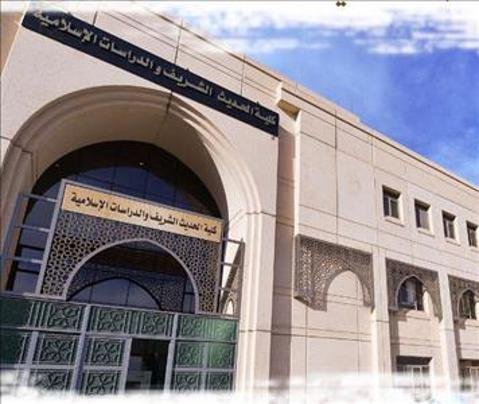The Noble Hadith is one of the most important sources of Islamic Sharia. It refers to the sayings, actions, approvals, and descriptions attributed to Prophet Muhammad (peace be upon him), recorded by his companions, transmitted through generations. The significance of the Noble Hadith in Islam is immense, serving as a basis for understanding religion and interpreting the Quran. It encompasses diverse topics including creed, ethics, behavior, legal rulings, Islamic history, and more. Similar to the Quran, the Noble Hadith is considered a guiding constitution governing the lives of Muslims and directing them towards righteous behavior and closeness to Allah.
Definition of the Noble Hadith:
The Noble Hadith refers to the sayings, actions, approvals, descriptions, and indications attributed to the Prophet Muhammad (peace be upon him), or what is narrated from him or added to him in terms of action, speech, report, or description. It is one of the sources of Islamic Sharia, relied upon for understanding and interpreting the Quran.
Origins and History of Hadith Sciences:
The science of Hadith emerged in the second century of the Islamic calendar, driven by the desire to authenticate and interpret the sayings of Prophet Muhammad (peace be upon him). Initially, Hadiths were orally transmitted from the companions to the successors, relying on memory for preservation. However, as the number of narrators increased, and the time gap widened, there arose a need to authenticate these Hadiths and verify the reliability of narrators. Many scholars contributed to the development and establishment of the science of Hadith, including Imam Malik, Imam Shafi’i, Imam Ahmad ibn Hanbal, Imam Bukhari, Imam Muslim, among others. Hadith collections were compiled, meticulously verifying their authenticity and the reliability of narrators, making Hadith a vital source for understanding and practicing Islam.
Importance of Studying the Noble Hadith:
Studying the Noble Hadith is crucial in Islam, offering numerous benefits:
– Better understanding of Islamic religion: Providing insights into legal rulings, ethics, and religious guidance.
– Authentication of Prophetic sayings: Through the science of Hadith, ensuring accuracy and authenticity of narrations.
– Engagement with Islamic heritage: Helping preserve and transmit the rich Islamic tradition to future generations.
– Learning from Prophetic ethics: Extracting moral lessons and guidance for daily life from the Prophet’s sayings.
– Safeguarding religion: Protecting against distortions or alterations in the divine words.
– Understanding worship: Explaining authentic practices and beliefs according to the Prophet’s teachings.
– Preservation of faith: Guarding against misconceptions and aberrations.
Types of the Noble Hadith:
The types of Noble Hadith vary in content, meaning, and purpose. Some of the most important types include:
– Noble Prophetic Hadith: Contains sayings directly attributed to Allah, considered among the greatest Hadiths.
– Authentic Hadith: Recognized for their accuracy, reliability, and clarity in chain of transmission and text.
– Good Hadith: Possessing a commendable level of authenticity and reliability.
– Weak Hadith: Characterized by weak authenticity and reliability, often avoided in religious understanding.
– Fabricated Hadith: Erroneously attributed to the Prophet, lacking authenticity and reliability, deemed invalid for religious understanding.
Branches of Hadith Sciences:
Hadith sciences can be divided into several branches, including:
1. Science of Criticism and Authentication: Deals with the study of Hadith narrators, determining the authenticity or weakness of their narrations.
2. Science of Hadith Verification: Focuses on verifying the authenticity and reliability of Hadith narrations.
3. Science of Hadith Compilation: Involves collecting similar Hadith narrations from various Hadith collections.
4. Principles of Hadith: Studies the fundamental principles and general rules of Hadith sciences.
5. Science of Exegesis: Concerned with interpreting Prophetic Hadiths, understanding their meanings, and applying them to daily life.
Difference between Hadith Sciences and Terminology:
Hadith sciences and Hadith terminology are two distinct fields within Islamic studies, differing in content, methodology, and objectives:
1. Content: Hadith sciences focus on the study, verification, and interpretation of Prophetic Hadiths, while Hadith terminology deals with the terms specific to Hadith, their meanings, types, and ranks.
2. Methodology: Hadith sciences employ a rigorous scientific approach, verifying the sources, chains of transmission, and texts of Hadiths, utilizing various Islamic sciences. Conversely, Hadith terminology uses a literary and linguistic approach, studying Arabic language, vocabulary, and semantics without necessarily verifying the authenticity of Hadiths.
3. Objectives: The objective of Hadith sciences is to authenticate and understand the Prophetic traditions, ensuring their accuracy and applicability in Islamic practice. On the other hand, the goal of Hadith terminology is to define and categorize the terminology associated with Hadith, elucidating their meanings and usages.

